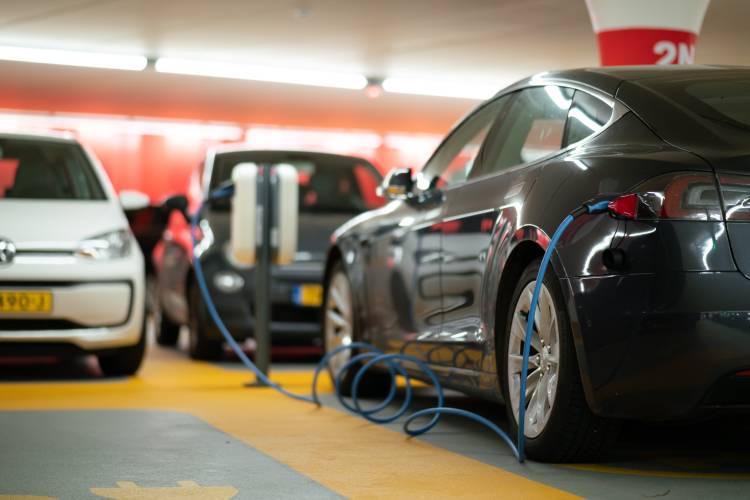
EV import dilemma: India is contemplating a cut in import duties for completely built EVs. Prominent industry figures, including Maruti Suzuki Chairman RC Bhargava, support this move. Bhargava argues that India’s automotive industry is competitive enough and does not require high tariffs for protection. He advocates for the UK and EU’s request for India to lower its steep car import tariffs.
Commerce and Industries Minister Piyush Goyal had also expressed confidence that Indian automakers can handle international competition. He is actively working towards a Free Trade Agreement (FTA) with the UK.
READ | Electric Vehicles: Not-so-green path to sustainable mobility
Automobile imports are taxed in three slabs — completely built units (CBUs) attract 100% import duty, semi knocked-down (SKDs) units 30%, and completely knocked-down (CKDs) units 15% where all parts are imported but assembled in India.
In the latest Union Budget, CBU cars with a CIF (cost, insurance, and freight) value below $40,000 saw duty rise from 60% to 70%, while those above $40,000 remained at 100%. Electric vehicles in CBU form exceeding $40,000 also experienced an increase from 60% to 70%. This policy seeks to encourage local value addition. For CKDs, which require significant in-country investment, lower tariffs apply.
However, trade analysts disagree with Bhargava. Ajay Srivastava, Founder of the Global Trade Research Initiative, argues that reducing tariffs will not benefit India and cites the 1980s, when Maruti Suzuki, under Bhargava’s leadership, thrived due to strict tariff barriers. He notes that Suzuki was struggling in Japan and only succeeded in India due to these protective measures.
The automobile sector, contributing a third to India’s manufacturing GDP, has elevated the country to the third-largest auto market globally. This growth has been achieved with scale and reduced production costs.
Globally, there is a tug-of-war going on between supporters of globalisation and protectionists. The World Trade Organisation (WTO) discourages protectionist trends, advocating for mutually beneficial trade practices. WTO head Ngozi Okonjo-Iweala has criticised western governments’ protectionist policies.
India’s internal debate on import duties mirrors a broader global trend. While the WTO champions free trade, many countries including western economies implement protectionist measures. This creates tension and complicates trade negotiations. Understanding this global context adds weight to India’s internal discussions and highlights the potential trade-offs of each policy decision. Ironically, India, which protests EU protectionism like the Carbon Border Adjustment Mechanism (CABM), faces criticism for its own trade barriers.
In response to the UK’s request for reduced car import duties in India-UK FTA negotiations, Bhargava suggests a 30% duty, noting India’s competitive edge in car manufacturing. The FTA is stalled due to opposition from some manufacturers, such as Tata Motors and Mahindra & Mahindra, who have voiced concerns over lower electric vehicle import taxes.
Imports of EVs
The proposed duty cut for electric vehicles raises global questions about fostering EV adoption. Developed countries, keen to promote their own EV industries, might view it as unfair competition. On the other hand, lowering tariffs could accelerate India’s EV transition by boosting market access and consumer choice. Analysing the international implications of India’s EV policy aligns the article with broader conversations about electric mobility and sustainable transportation.
Bhargava emphasises India’s competitiveness, pointing to Maruti Suzuki’s annual export of 700,000 cars. As India’s largest passenger vehicle maker, Maruti Suzuki’s success underscores the country’s global market strength.
Beyond import duties, India’s automotive industry plays a crucial role in the global supply chain. Its large domestic market, growing manufacturing capabilities, and skilled workforce attract major carmakers. Understanding India’s position within the global network of automobile production provides a larger framework for interpreting its internal policy debates and their potential international repercussions.
Previously, the Society of Indian Automobile Manufacturers (SIAM) had proposed gradual elimination of import duties on a limited number of UK cars. Their plan suggested reducing the duty from 100% to 70%, eventually reaching 10% in the fifth year for up to 46,200 vehicles.

